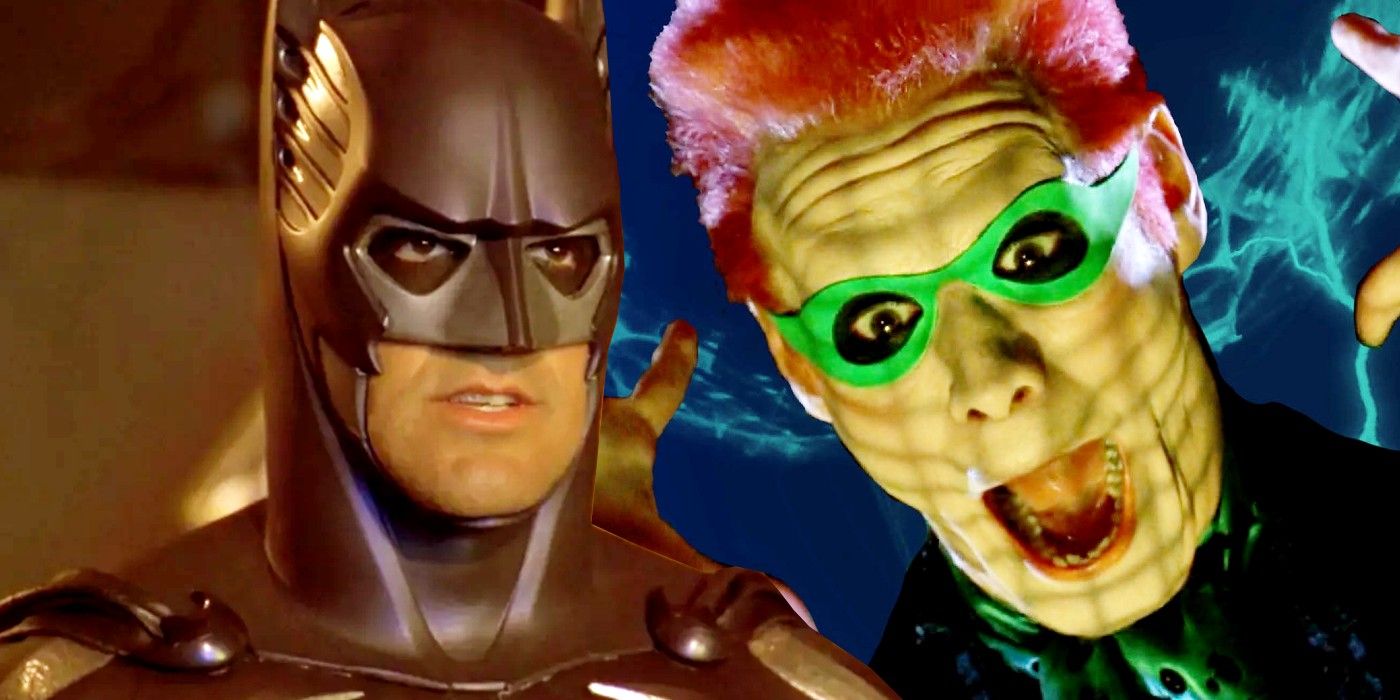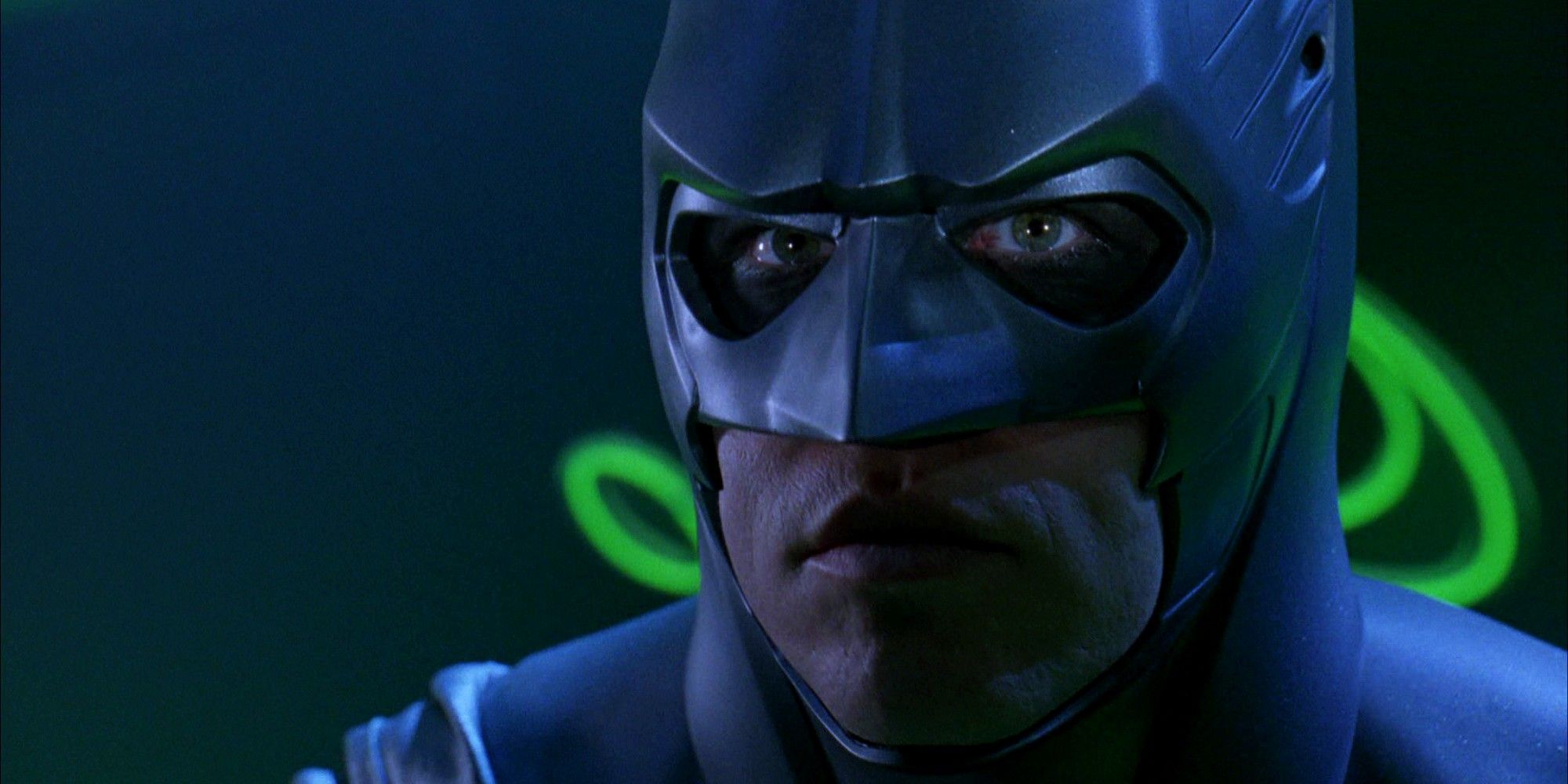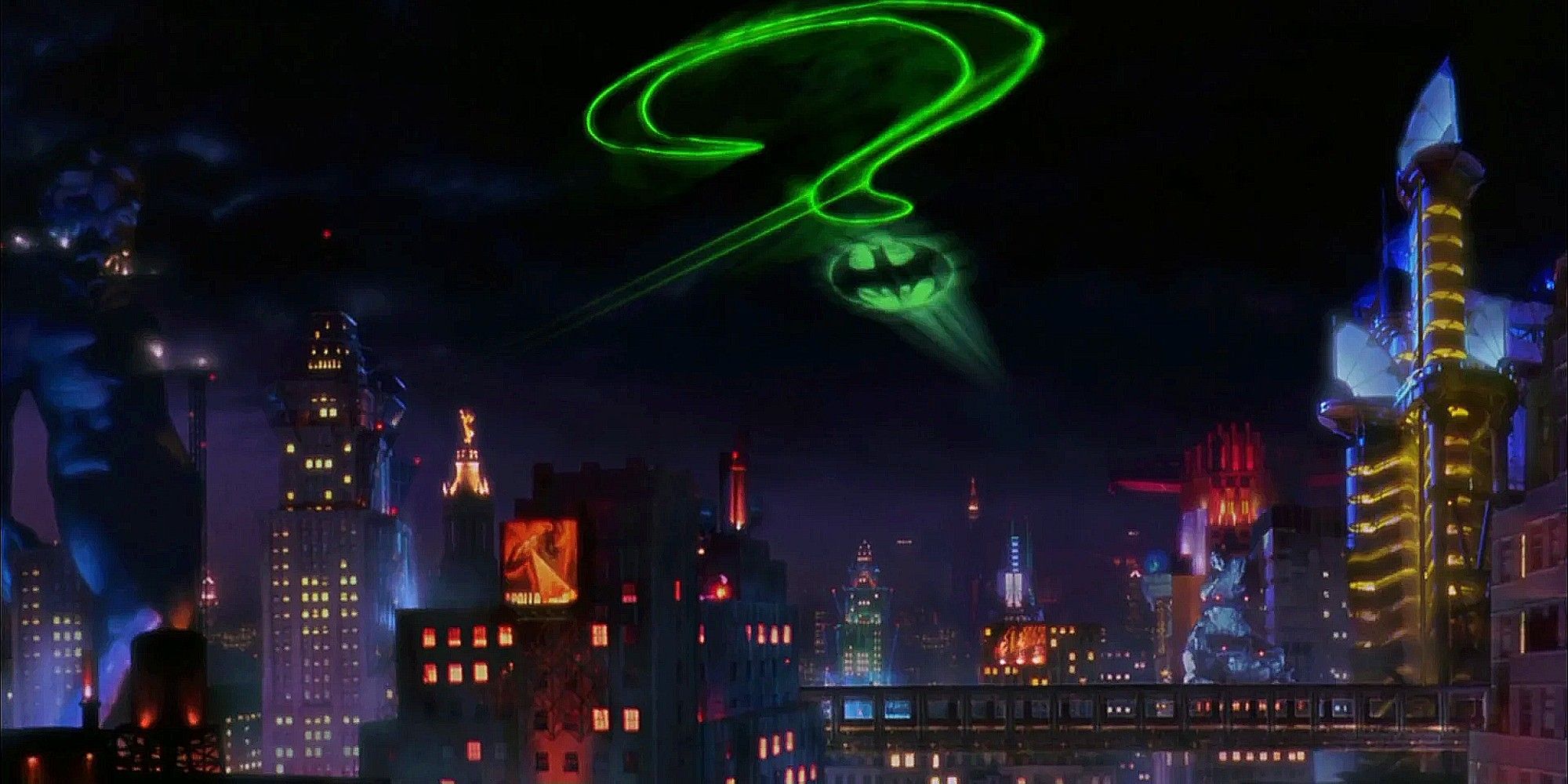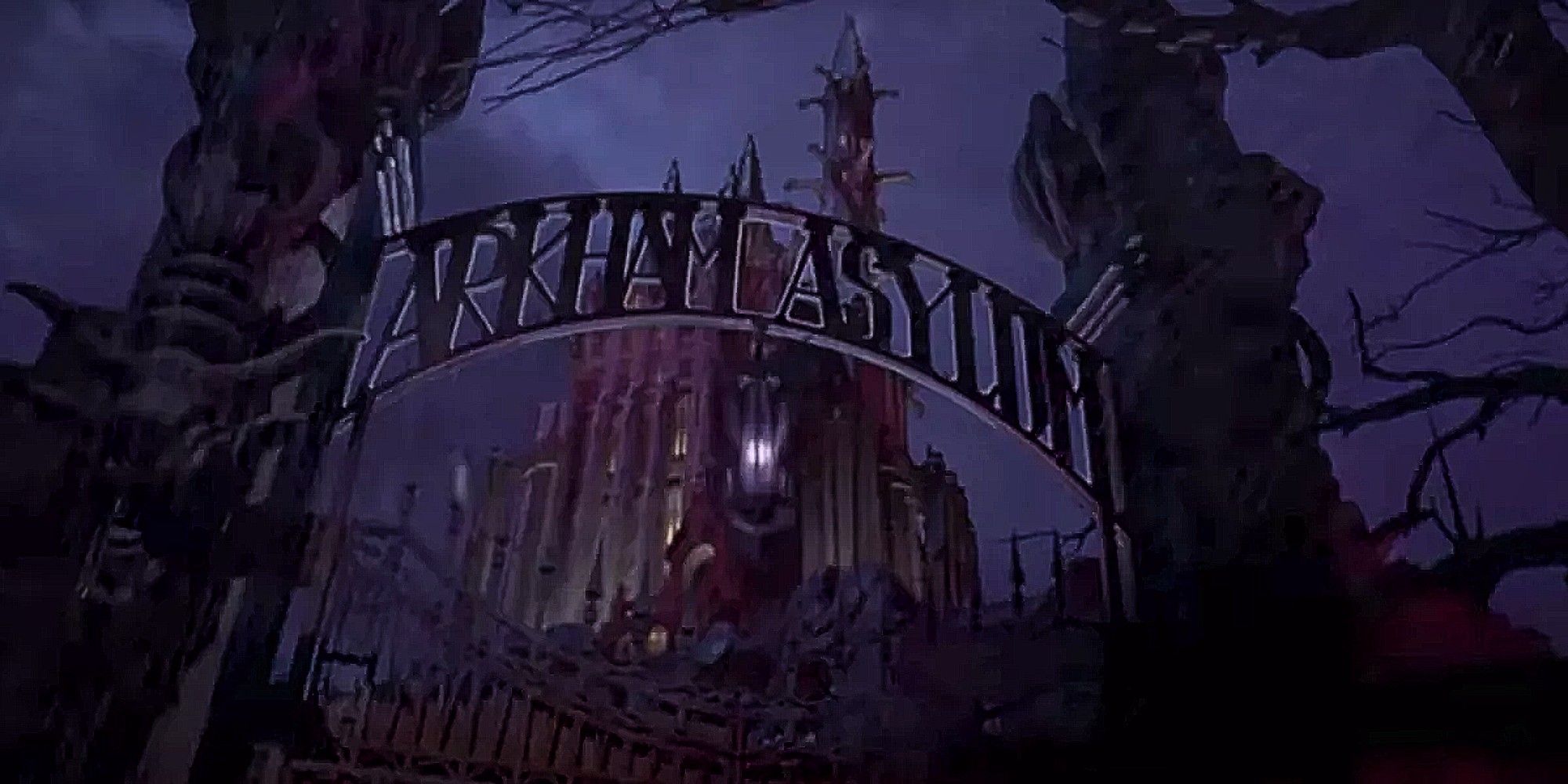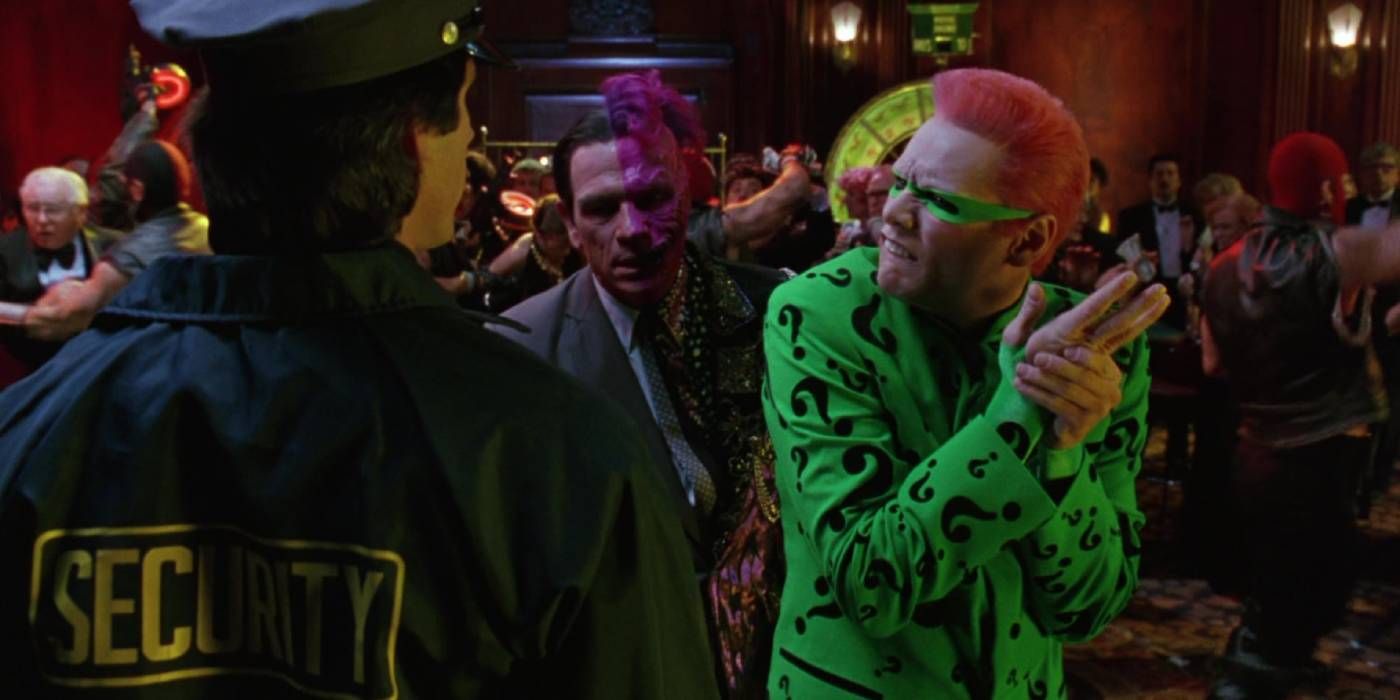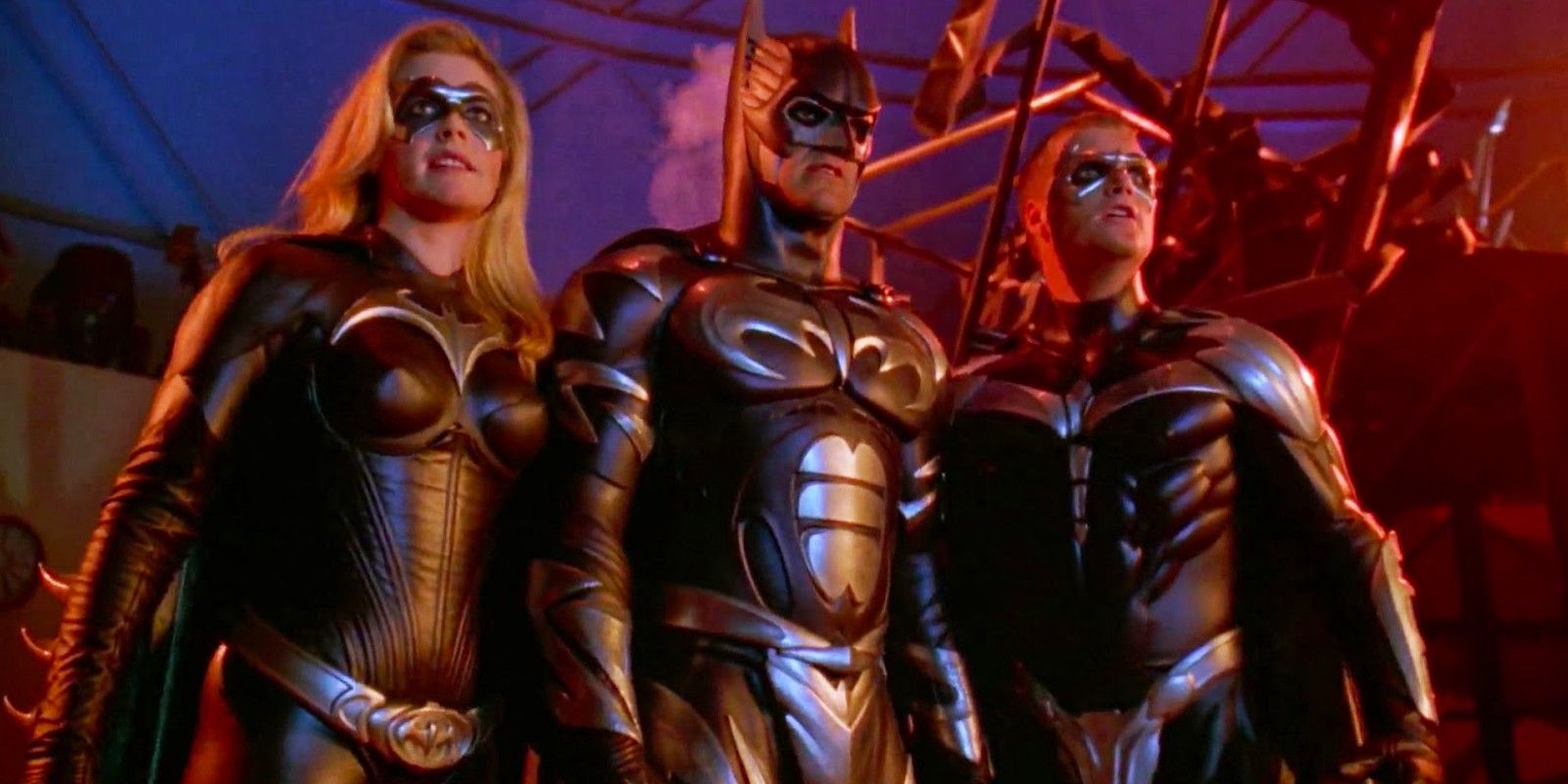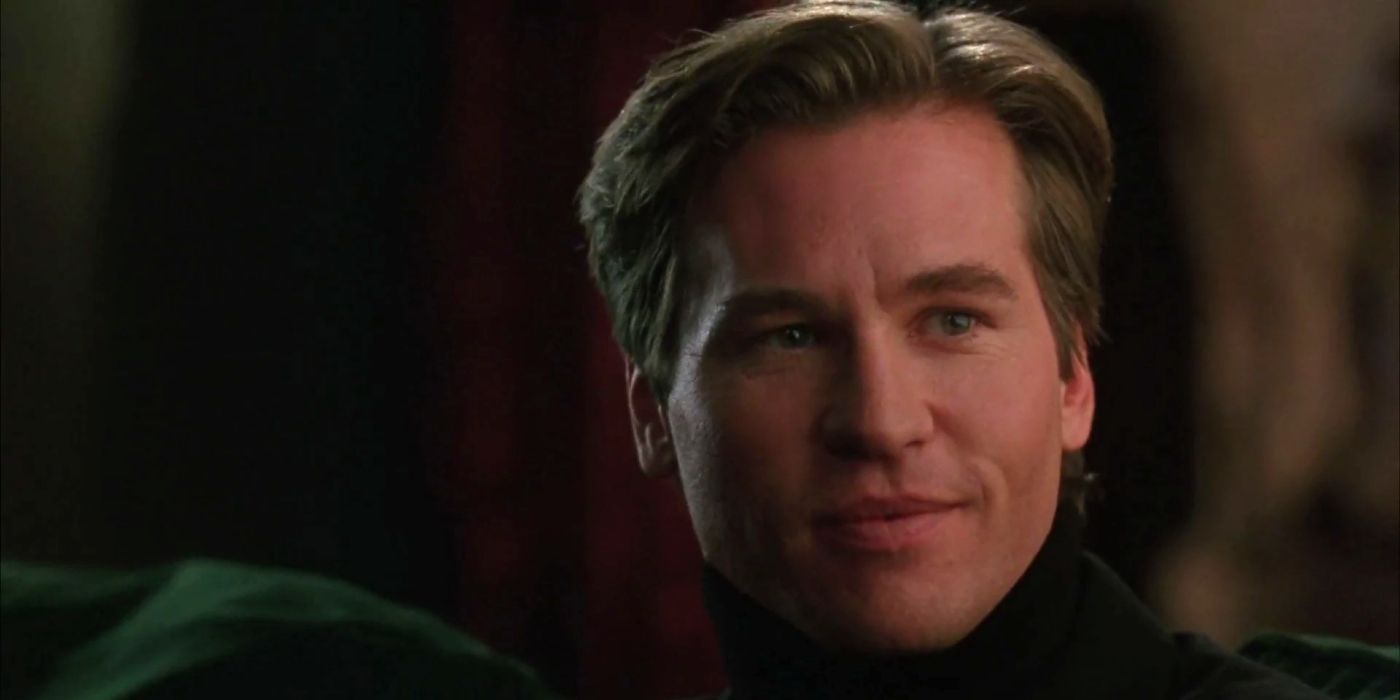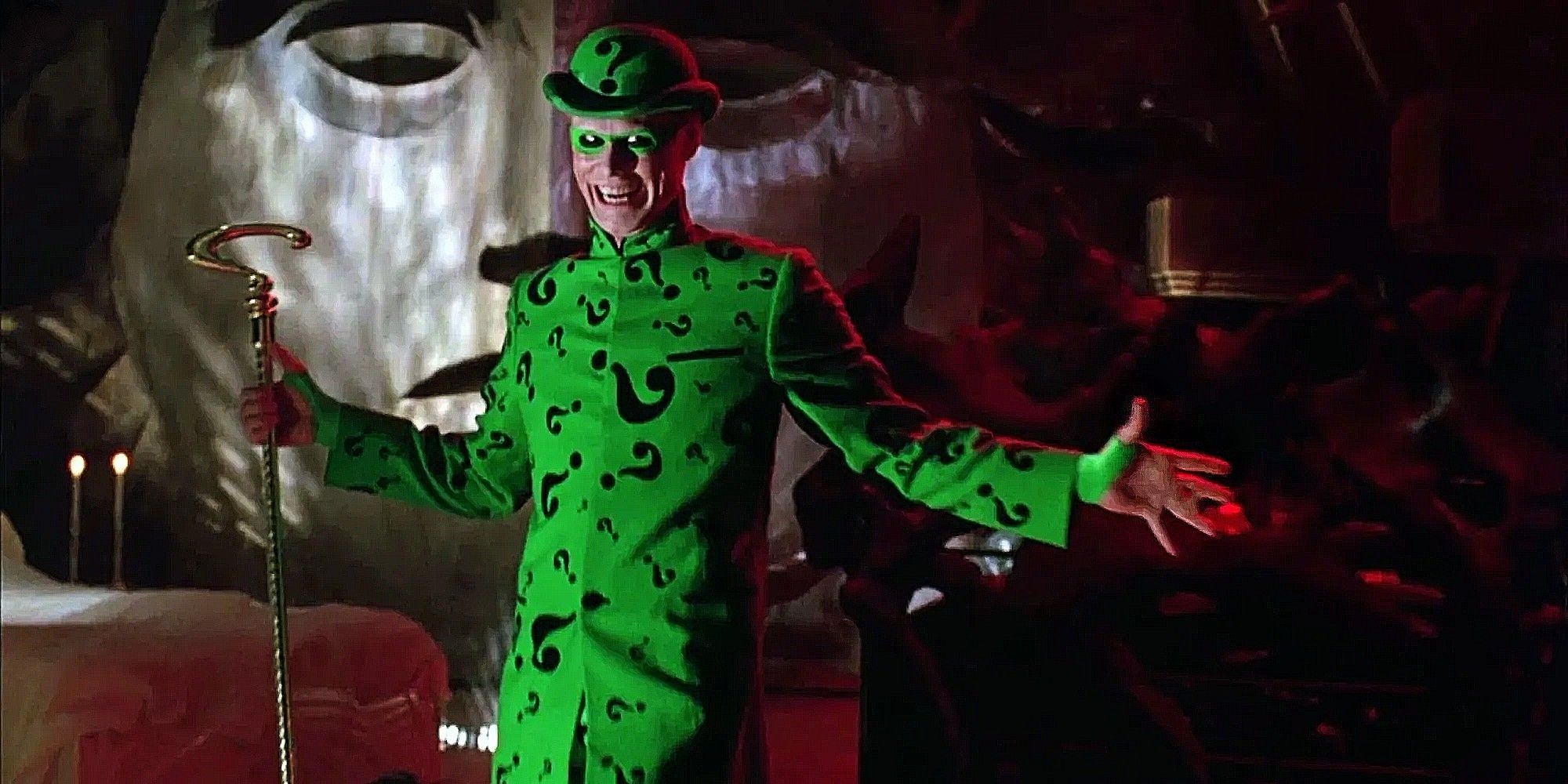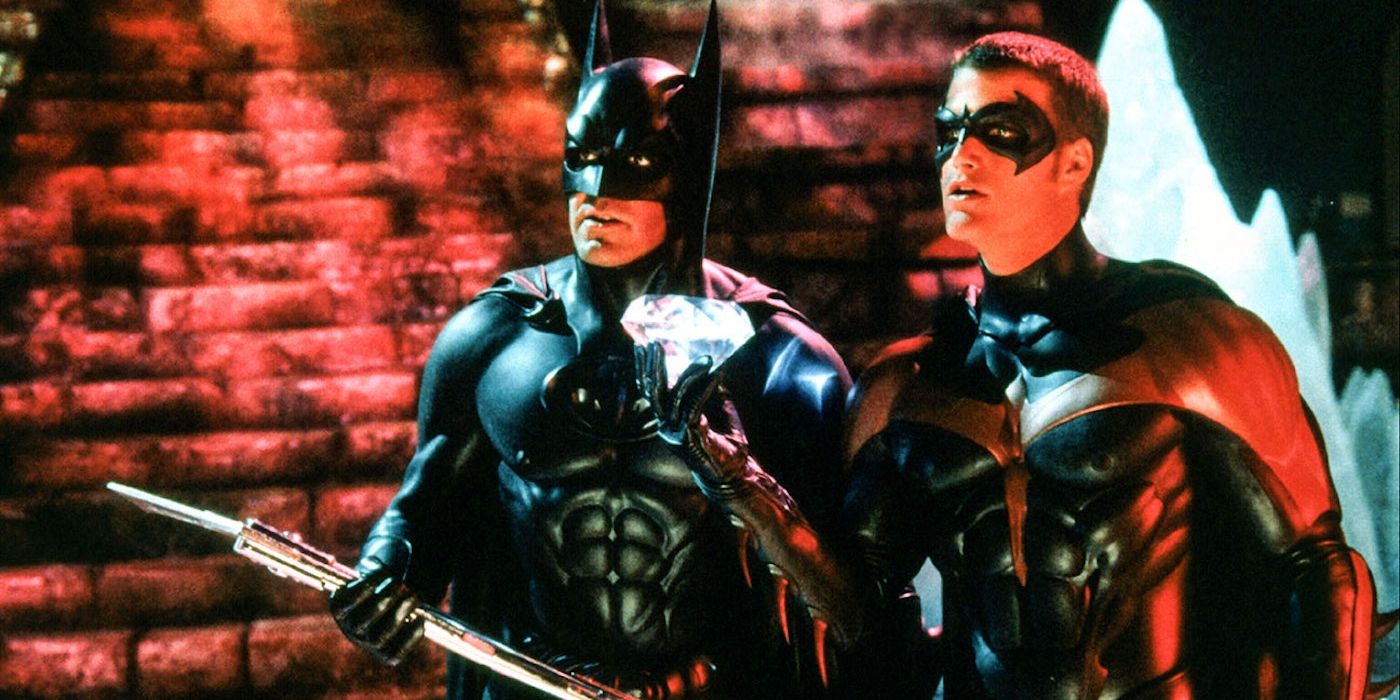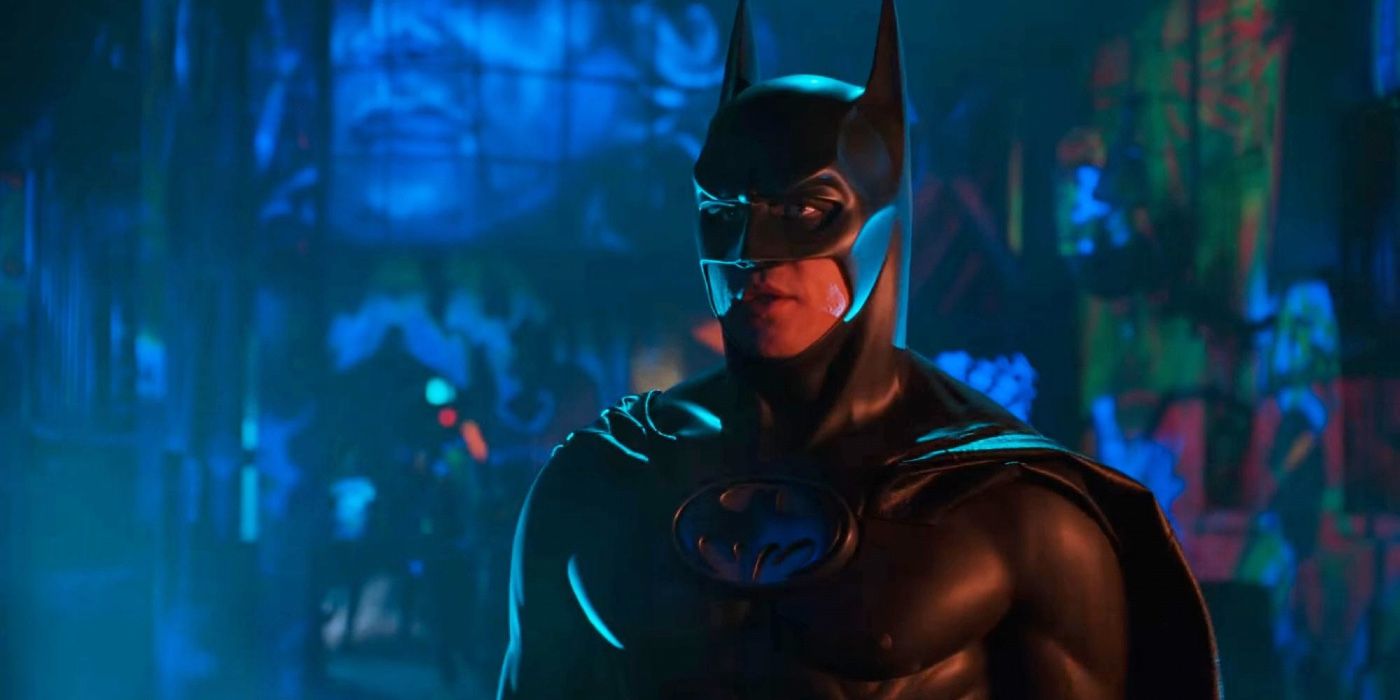Summary
- Joel Schumacher's Batman movies built upon Tim Burton's adaptations, exploring the continuation of themes and providing significant continuity.
- Schumacher's movies offer a refreshing break from the bleak and gritty tone of other Batman films, giving a more fun and hopeful perspective.
- Despite their poor reputation, Schumacher's movies were more comic-accurate than they are given credit for, embracing the weirder elements and paying homage to the character's mythos.
The Batman movies made by Joel Schumacher might be remembered as some of the worst of DC's Batman movies, but they actually have a handful of redeeming qualities that are often overlooked. After Tim Burton's two adaptations of the iconic vigilante proved successful, he was replaced for the planned third outing by Joel Schumacher. The resulting movie was 1995's Batman Forever, starring Val Kilmer in the title role and following Batman as he meets and teams up with Dick Grayson against the Riddler and Two-Face. The 1997 sequel, Batman & Robin, is widely regarded as one of the worst superhero movies of all time.
Due to the poor reputation of Schumacher's movies, their better qualities are all too often overlooked. Compared to the movies that came before and after, they certainly aren't the strongest adaptations of the Batman mythos, but that isn't to say that they're entirely without charm. Despite the overly wacky and occasionally campy nature of the films, there are many ideas and themes that they explore that are both interesting and true to the iconic hero whose story they tell. Though they're considered the worst Batman movies, here are 10 overlooked positives of rewatching Joel Schumacher's Batman movies.
10 Batman Forever Actually Builds Upon Burton’s Movies
One of the major things that Schumacher's Batman movies get right is the way in which they build upon the movies made previously by Tim Burton. Though the connection between the movies is left ambiguous, it was always heavily implied that Schumacher's films were a continuation of the stories started by Burton (albeit with new actors and a new approach). However, Schumacher's films actually begin to delve deeper into the titular hero, attempting to examine why Bruce Wayne actually became Batman and whether his crusade has become a dangerous obsession. By exploring the continuation of Burton's own themes, Schumacher makes a commendable attempt at significant continuity.
9 It’s Refreshing To See Batman Movies That Aren’t Bleak & Gritty
Before Schumacher's involvement, Burton's movies explored a more gothic setting, quirky villains, and a Batman who kills. Throughout the 21st Century, Batman movies have become increasingly gritty, leaning on the darker aspects of the character. Rewatching Schumacher's movies offers a different perspective: Batman Forever and Batman & Robin are distinctly more fun and hopeful than most other Batman movies, and that makes them unique. Though they're silly and more than a little campy, the more light-hearted tone is a welcome break for those tired of numerous intense takes on the hero.
8 Schumacher’s Movies Were More Comic-Accurate Than They Get Credit For
In many ways, Schumacher's movies enjoyed a degree of comic accuracy that is too often overlooked. Not only do the films embrace some of the weirder and wackier elements of the comics, but they also pay homage to the TV series of the '60s and the wildly popular Batman: The Animated Series. Schumacher's movies offered up perhaps the most comic-accurate live-action take on Arkham Asylum and featured various subtle nods to elements of the character's mythos that are all too easily forgotten by their detractors.
7 Schumacher Attracted A Cast Of Unbelievable Stars For His Batman Movies
As the conversation surrounding Schumacher's two Batman movies is overwhelmingly negative, one of the films' best qualities is typically overlooked: Schumacher's movies may be remembered as ill-advised, but his casting certainly wasn't. Though Val Kilmer and George Clooney are remembered as some of the sillier Batman actors, they were undoubtedly huge names and more than capable of fitting the role. With some of the '90s biggest stars such as Jim Carrey, Tommy Lee Jones, Uma Thurman, and Arnold Schwarzenegger also joining Schumacher's casts, one thing the director's efforts aren't lacking is talent.
6 Schumacher Actually Represented The Bat Family
Though the fact is all too often forgotten, the Bat Family has always been given something of a raw deal in Batman movies. Robin has made only a few scant appearances, and Batgirl is largely overlooked altogether. Schumacher's movies made a legitimate attempt to represent the characters, with Robin, Batgirl, and Alfred all playing major roles. Although their respective characterizations left a good deal to be desired, they were at least adapted for the film, and Schumacher's movies remain Robin and Batgirl's most significant big-screen outings to date.
5 Bruce Wayne Is More Fleshed Out In Schumacher’s Batman Movies
Burton's Batman movies put the focus entirely on the titular hero, but Batman Forever marked a clear improvement in the approach to Bruce Wayne. Rather than simply being Batman's secret identity, Batman Forever presents Wayne as a complex individual who struggles to repress his heroic tendencies even when not wearing his mask. This completes his shift from the vengeful vigilante of Burton's movies to a more quintessential hero, which also fits Schumacher's more simplistic approach to adapting the character.
4 Jim Carrey’s Riddler Subtly Mirrors Heath Ledger’s Joker
Though villains in Schumacher's Batman movies aren't known for their quality, Jim Carrey's Riddler shares many similarities with one of the greatest movie villains of all time. There are a huge number of parallels between Carrey's Riddler and Heath Ledger's Joker, including a plan involving defrauding Gotham residents and attempting to uncover the identity of Gotham's most heroic figures. Riddler goes after Bruce Wayne, while Joker goes after Batman, but both villains end up in Arkham Asylum by the end of their respective movies. The narrative parallels run deceptively deep, and it's an easily overlooked feature of Schumacher's movies, which can only be flattering considering The Dark Knight’s revered nature.
3 Making Family-Friendly Batman Movies Wasn’t The Worst Idea
It might be one of the most hated decisions Schumacher made, but making more family-friendly Batman movies wasn't actually a bad idea. After all, children often love superheroes, and the simple good versus evil nature of their stories is accessible for all. Making Batman movies that families can enjoy together actually makes perfect sense, dialing down the brutality and darkness in order to broaden the movies' commercial appeal. Though the execution was ultimately lacking, the reasoning behind the approach remains relatively sound.
2 Schumacher’s Earnest Response To Criticism Makes His Batman Movies Better
In response to the backlash over Batman & Robin, director Joel Schumacher eventually apologized to those who were disappointed by his Batman movies, and it actually makes them seem better in retrospect. In an interview with Vice, the late director offered a sincere apology for how the film was received and expressed that his intention was simply to make a fun film that people would enjoy. Looking over Schumacher's comments, it's clear that he couldn't have known how ill-advised his approach was. Knowing the intention was solely for the films to entertain, it's much more difficult to conjure the vitriol often leveled at Schumacher's Batman movies.
1 Schumacher Perfectly Explained How He Reinstated Batman’s No-Kill Rule
Batman Forever was by far the better of Schumacher's two movies, and it also made a massive improvement on a key aspect of the character that Burton previously overlooked. Though Batman was shown killing criminals in Burton's movies, Schumacher reinstated his no-kill rule for Batman Forever, dropping a line of dialogue to explain its importance. When mentoring Robin on the nature of revenge, he explains from experience that killing and revenge only further fuel the anger. It's a fitting explanation for the rule and remains poignant even decades on, and it's one of the most overlooked positives of Schumacher's Batman movies.

